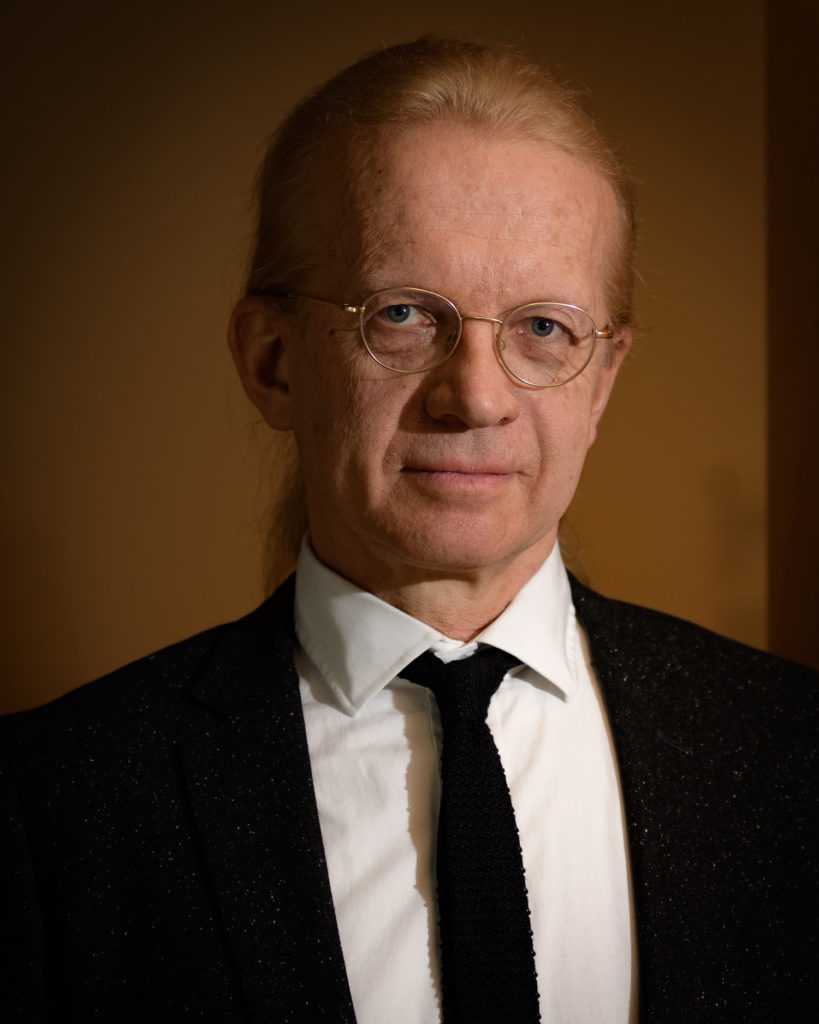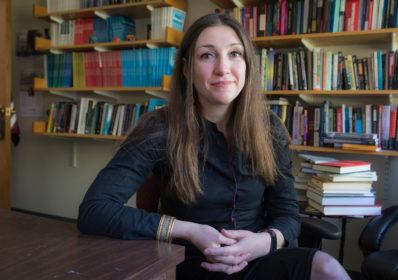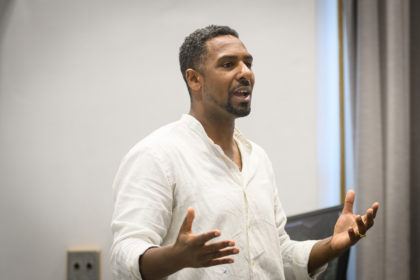Strassler Center conference wrestles with issues of memory, identity, and oppression

Why do memories of an oppressive past persist across generations, and how do they pose challenges to national identity and social cohesion?
Comparative perspectives on the impact of such memories in the United States and Germany were the focus of “E Pluribus Unum? Memory Conflicts, Democracy, and Integration,” a conference hosted last month by the Strassler Center for Holocaust and Genocide Studies at Clark University.

Among the 17 distinguished historians, sociologists, psychologists, and other scholars who shared their perspectives were three Clark University faculty members: historians Thomas Kühne and Ousmane Power-Greene, and social psychologist Johanna Vollhardt.
Conference organizer Kühne, Strassler Professor of Holocaust History and director of the Strassler Center, set the stage for four panel sessions with his talk “Memory Conflicts and National Identity: Germany and the United States.”
Kühne framed his presentation in the context of what some earlier scholars have suggested are two requisites for a cohesive nation: a common enemy and the myth of a shared past, both which can be used to define who belongs to a nation and who does not. Citing post-Civil War United States and post-World War I Germany as examples, Kühne demonstrated how memories of a mythical past are constructed and reshaped over time by various factions to serve their own agendas. He also described how the “genocidal stigma” carried by Germany after WWII led that country to create a “negative memory” of its wartime past in an attempt to take responsibility for the Holocaust and break with the heroic warrior myth that had contributed to it.
Johanna Vollhardt, associate professor of psychology, and Ousmane Power-Greene, associate professor of history, presented their research as part of a panel session on “Trauma, Identity, and Reconciliation.”

Vollhardt offered insight into why perpetrators and victims of mass violence often form very different collective memories of a shared event. She argued that each group’s memory is shaped by its collective identity and the psychological needs associated with its social role as victim, perpetrator, or bystander. Perpetrator groups try to frame their collective memory in a way that preserves their moral integrity and positive self-image, she said, while victim groups shape a memory that will evoke acknowledgment of their suffering and protect them from future harm. Vollhardt suggested that an understanding of these social psychological processes can help address the challenges of memory politics, especially in multicultural societies.
A specialist in African American social and political movements, Power-Greene addressed the topic of financial compensation for the race-based violence against blacks that occurred in the years around 1920 in the U.S., notably the Red Summer of 1919. He argued that today’s focus on reparations for slavery has overshadowed the violent and little-known attacks on entire African American communities during that period. Despite public calls at the time for the federal government to intervene and bring the perpetrators to justice — an act viewed as critical to prevent further violence — Congress and President Woodrow Wilson were either unwilling and/or unable to find any constitutional or legal basis for pursuing such a course.

Power-Greene called for the current federal government to investigate and, where appropriate, offer financial compensation to descendants of African Americans who were terrorized and killed. Power-Greene maintained that attempts to right the wrongs of the past through public statements and/or the establishment of memorials to commemorate those killed and injured has been insufficient to bring about racial reconciliation in the affected black communities.
Daan de Leeuw, a doctoral candidate in Holocaust and Genocide Studies at Clark, found the conference’s multi-faceted approach to the subject of genocide and mass violence illuminating.
“The great thing about this conference was that it brought together a group of interdisciplinary scholars, such as historians, sociologists, and social psychologists,” he said. “This is particularly relevant as the themes addressed can and should be studied from all of these perspectives.”
Mary Jane Rein, executive director of the Strassler Center, said the conference “seeded an important conversation that will grow and develop in the years ahead. It will advance the Strassler Center vision to institutionalize the study of mass violence in the U.S. context.”
An anonymous donor was the main sponsor of the conference. The keynote address was funded by the Asher Fund and the Cutler Charitable Foundation.
Read more about the conference >
Listen:
Keynote Speaker
Conference Intro and Panel I: Collective Identity and Memory Politics in the United States
Panel II: German Memories, American Memories


